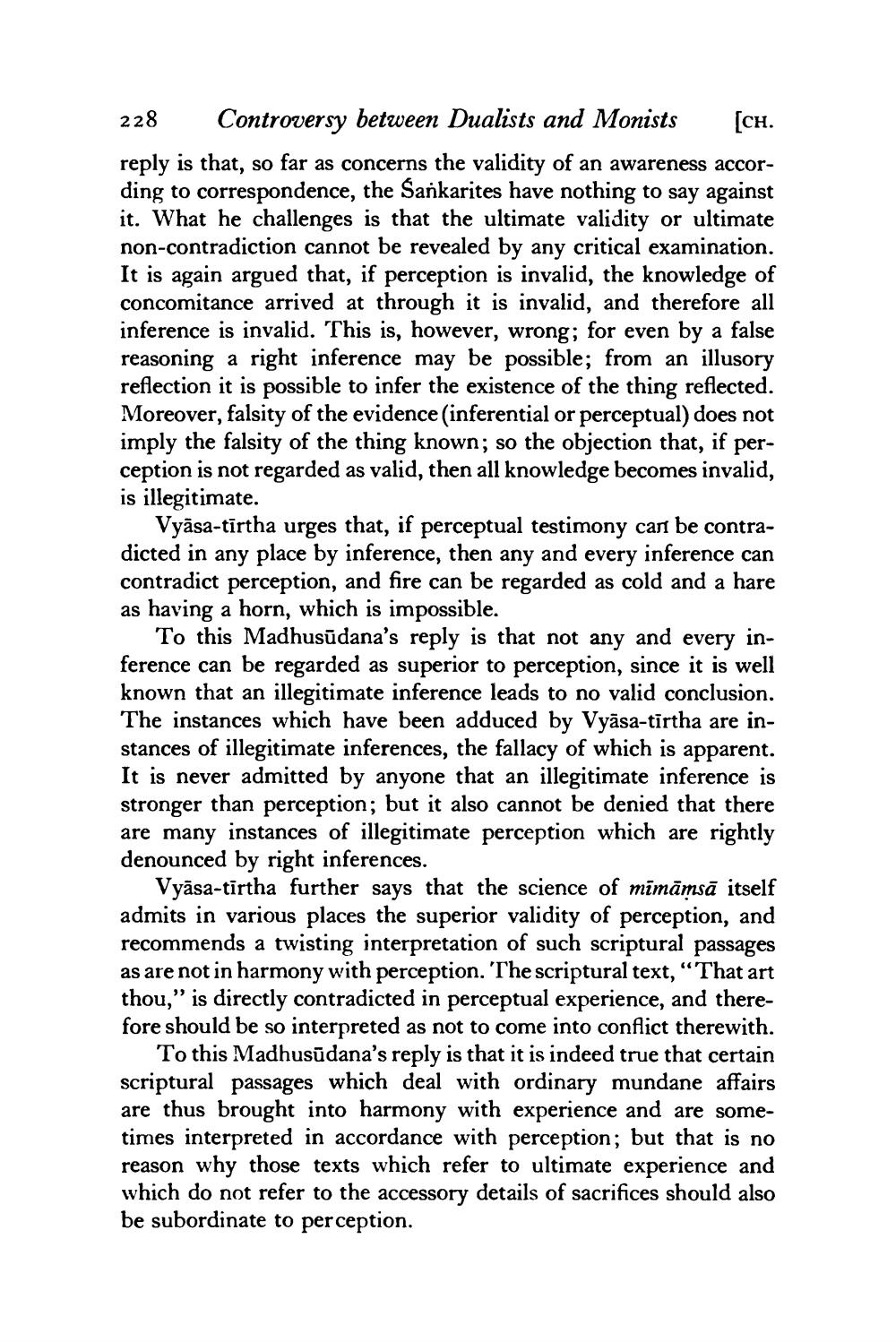________________
228 Controversy between Dualists and Monists [CH. reply is that, so far as concerns the validity of an awareness according to correspondence, the Sankarites have nothing to say against it. What he challenges is that the ultimate validity or ultimate non-contradiction cannot be revealed by any critical examination. It is again argued that, if perception is invalid, the knowledge of concomitance arrived at through it is invalid, and therefore all inference is invalid. This is, however, wrong; for even by a false reasoning a right inference may be possible; from an illusory reflection it is possible to infer the existence of the thing reflected. Moreover, falsity of the evidence (inferential or perceptual) does not imply the falsity of the thing known; so the objection that, if perception is not regarded as valid, then all knowledge becomes invalid, is illegitimate.
Vyāsa-tīrtha urges that, if perceptual testimony can be contradicted in any place by inference, then any and every inference can contradict perception, and fire can be regarded as cold and a hare as having a horn, which is impossible.
To this Madhusūdana's reply is that not any and every inference can be regarded as superior to perception, since it is well known that an illegitimate inference leads to no valid conclusion. The instances which have been adduced by Vyāsa-tīrtha are instances of illegitimate inferences, the fallacy of which is apparent. It is never admitted by anyone that an illegitimate inference is stronger than perception; but it also cannot be denied that there are many instances of illegitimate perception which are rightly denounced by right inferences.
Vyāsa-tīrtha further says that the science of mīmāmsā itself admits in various places the superior validity of perception, and recommends a twisting interpretation of such scriptural passages as are not in harmony with perception. 'The scriptural text, “That art thou,” is directly contradicted in perceptual experience, and therefore should be so interpreted as not to come into conflict therewith.
To this Madhusūdana's reply is that it is indeed true that certain scriptural passages which deal with ordinary mundane affairs are thus brought into harmony with experience and are sometimes interpreted in accordance with perception; but that is no reason why those texts which refer to ultimate experience and which do not refer to the accessory details of sacrifices should also be subordinate to perception.




